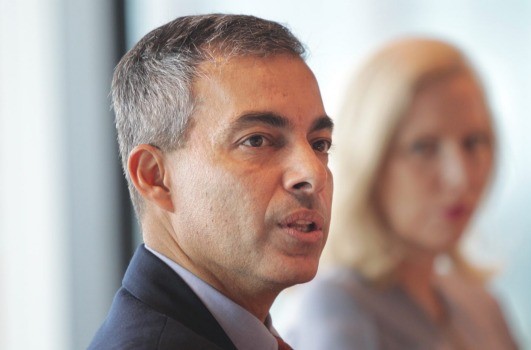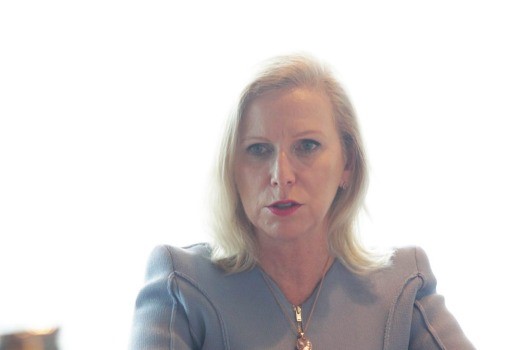More than Quantum: Qubits and Quantum Momentum Edition
It’s hard to believe we are nearly at the end of 2017 and as we count down to 2018, we’ll have another dose of quantum news to share. This year we’ve seen some major progress in quantum technology – from computers to QKD communications and more. And without further ado, on with the news!
Flip-flop qubits is a revolutionary breakthrough in computing design
Engineers at the University of New South Wales (UNSW) have developed a “radical” architecture for quantum computing by allowing quantum bits (qubits) to be placed hundreds of nanometres apart but remaining coupled. Based on what they are calling “flip-flop qubits” this could make the large-scale manufacture of quantum chips dramatically cheaper and easier. The conceptual breakthrough is the creation of an entirely new type of qubit using both the nucleus and the electron. The new chip design allows for a silicon quantum processor that can be scaled up without the precise placement of atoms required in other approaches.
[via ZDNet]
Fahrvergnügen! Google and Volkwagen are collaborating on quantum computers

Google and Volkswagen are teaming up to develop quantum computers. The Volkswagen specialists are pursuing solutions for individual road users, EV owners, and better urban traffic planning. The Volkswagen Group and Google announced the comprehensive quantum computing research collaboration at the Web Summit 2017 technology conference in Lisbon — where they’re delving into algorithms, simulations, and optimizations to more deeply develop and integrate transportation vehicles and services.
[via Cleantechnica]
Quantum computing, are we there yet? Backed by billions in investment we’re getting closer

Technology companies and academic research teams are racing to bring the reality of quantum computers to market. Fueled by billions of dollars of investment, there have been some significant recent advances in quantum technology that are making some think that the use of quantum machines by mainstream customers in research and, yes, business is right around the corner. This is a great primer on the current state of quantum computer and where we’re heading.
[via Search CIO]
India joins the QKD space race

India is the latest country to join the quantum key distribution (QKD) “space race” to build a QKD satellite networks for secure quantum communications. Raman Research Institute (RRI) in Bengaluru is working with the Indian Space Research Organisation (ISRO) to develop the quantum technologies that ISRO’s satellites would need to establish a QKD. Under the memorandum of understanding between RRI and ISRO Space Applications Centre (ISAC), ISRO will fund the Quantum Information and Computing (QuiC) laboratory at RRI.
[via The Wire]
True Random Stories
Looking beyond quantum, our CEO Vikram Sharma was recently featured in a three-part series based on a recent Businesses of Tomorrow roundtable co-hosted by The Australian Financial Review and the program sponsor Westpac. In case you missed it, here they are!
Part 1: Well poised for digital economy, although hurdles remain

Australian business is well placed to prosper in a globalized digital economy but we still have a few hurdles to overcome. Interestingly, the changing nature of work in the new economy is also changing the way we perceive workplace culture.
“That’s something we grapple with all the time, even though we’re a mid-sized organization, but that diversity (and it comes with different mindsets, different sets of values) is what management needs to let percolate away. The key is to (ensure) we are aligned as to where we all collectively want to go,” noted Sharma.
[via AFR]
Part 2: A sense of purpose the new driver for younger business owners

Business has always been business: the prime motivation of business owners is to identify a customer need, provide the product or service to solve it, sell that product and service, and thus create wealth that will allow them and their families to control their own destiny. For most business owners, being their own boss and being free to do things their way is all the motivation they need. But for younger business owners, there is another element to success: purpose.
“We started off nine years ago as a small organization of some 10 people, we’re a mid-sized company now, but we’ve had a total turnover of under a dozen people. One of the major reasons for that is that although we haven’t been able to offer any tremendous financial incentives, we’ve had an alignment with a sense of purpose, and that’s really allowed us to have a high degree of buy-in and retention. We’ve benefited from that sense of [our people] putting commitment over and above what you traditionally expect from a job,” says QLabs CEO Vikram Sharma.
[via AFR]
Part 3: Setting ambition for business beyond the natural borders

Australian business exists in a more globalised world than ever before, with instantaneous connectivity to its counterparts and customers anywhere, but in some ways, the nation’s island character does not change. Australia can still be a bit sheltered from the rest of the world – which can contribute to complacency.
“One of the factors that maybe holds us back from generating that ambition to go large is the perceived difficulty of doing so,” said QuintessenceLabs CEO Vikram Sharma. “There are a few, like Atlassian or Cochlear and some incredible companies like that, but there really are only a handful of companies that you can point towards that have achieved that kind of success – so one of the reasons for a perceived lack of global ambition is that it’s just put in the too-hard basket. But I believe we’re making this transition, we’re starting to see the emergence of companies that are perhaps not global superstars yet, but have got great differentiated technology capabilities that position them well on the global stage.”
[via AFR]Share this
You May Also Like
These Related Posts

More than Quantum: Quantum Breakthroughs in Australia Edition

More than Quantum: Quantum-Secured Messaging Edition


